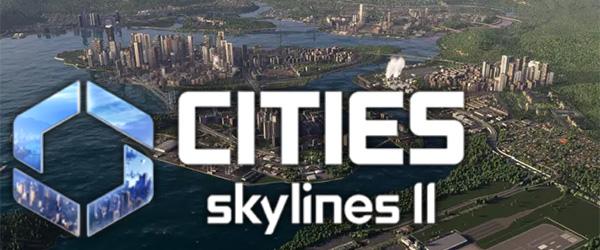
I've been playing Cities: Skylines for almost 10 years. As soon as I started playing it, I recognized it as the definitive city-building game. It blew its contemporaries, such as SimCity (2013) and Cities XL out of the water. It was a smash success that developed a massive following and spawned 11 full expansions, 4 mini-expansions, 21 asset packs, numerous music packs, and thousands of player-created mods and custom assets.
Creating a sequel to a game that is so beloved and content-rich can be challenging or daunting. Sequels to extensively-expanded games, such as any given entry of The Sims, Civilization, Crusader Kings, World of Warcraft, Rock Band, and so forth, run the extreme risk of feeling bland, empty, and incomplete compared to their content-rich and/or mechanically-complex predecessors. This can leave the sequel feeling underwhelming to long-time audiences, who might return to the older game because they crave the extensive, familiar content. The Sims in particular is infamous for stripping out popular expansion content, and then selling that content back to consumers again (and again) as an expansion pack for the sequel. The most notable example is probably that every Sims game has a "Pets" expansion, because EA could never bite the bullet and just put dogs and cats in the vanilla launch of a sequel.
Sequels to expanded games often strip out popular content to re-sell as expansions.
The sequel to Cities: Skylines is a bit of a mixed bag in this regard. On the one hand, yeah, a lot of content from the original game is absent from the sequel, and the options for what players can build can feel a bit sparse. On the other hand, the vanilla release of Cities: Skylines II retains something from almost every one of the original game's expansions. It even includes content and mechanics that were part of some of the smaller content packs and from popular mods.
The vanilla game includes a day/night cycle that was introduced in the original's After Dark expansion. Some of the economic models of the After Dark and Industries expansions have been expanded in scope to apply to the entire game, thus alleviating some of the need for explicit tourism, leisure, or specialized industry districts. It took the winter themes of Snowfall and fleshed it out into a full seasonal cycle. It includes some of the weather and disaster events from Natural Disasters, as well as some of the early-warning and shelter infrastructure. It includes modular upgrades and customizations to certain buildings and infrastructure, as well as large industrial areas, that fills a similar role as the modular areas of Parklife, Industries, Campus, and Airports (though I'll talk more about this mechanic later in the review). It includes pedestrian roads from Plazas & Promenades. It includes eco-friendly variations of utilities that were part of the Green Cities expansion. And of course, it has road-building and transit-planning tools that largely leave Mass Transit in the dust.
It even includes sports parks and parking lots, which were late DLC content released for the original game in the last couple years. And the road-building and traffic-management tools have much of the functionality from the popular "Road Anarcy" and "Network Extension" mods. And that's to say nothing of all the brand new content, mechanics, and more complicated simulation! So even though it is not as full or content-rich as its predecessor with its double-digit expansions (how could it be?!), Cities: Skylines II is still a fully-featured and content-rich city-builder that can be played for many hours before going stale.
Some content and mechanics from almost every CS1 expansion are included in CS2's launch.
But as I said, there is quite a lot of content from the original game that did not make the cut, and which is sorely missed. For one thing, bicycles and bike lanes aren't in the game at launch, which is a kind of baffling decision (considering this game is developed in Scandinavia, where bicycling is huge). There also aren't any walls or fences or quays, and the tool for disabling zoning on either side of a road is strangely absent. So it's back to using pedestrian paths to remove zoning from arterial roads. Zoning is actually quite a bit of a pain in the ass in the sequel, and I am frequently fighting with the road layout, zoning squares, and pedestrian paths to try to get my city to look the way I want.
If you were particularly fond of leveling up and expanding things like industrial parks, nature preserves, amusement parks, universities, and so forth, then you might be disappointed by their absence. In fact, recreation, leisure, and tourism options are very spares in the sequel, as it lacks the tourism and leisure districts of the After Dark expansion. You also won't be building any small fishing villages, since Sunset Harbor is the one expansion that doesn't have anything being carried over into the sequel.
To its credit, the vanilla release of Cities: Skylines II feels more content rich and mechanically-compelling compared to the vanilla release of the original Cities: Skylines. But there's so much absent from the original game, that I un-install the original from my PC with a degree of trepidation.
There is some content from CS1 that is conspicuously absent. [More]
a2c0f15c-0983-4034-a8e5-7561b2c76190|0|.0
Tags:Cities: Skylines, Cities: Skylines 2, Colossal Order, Paradox Interactive, city, city management, city simulation, seasons, industry, parking, tourism, poverty, homelessness, welfare, subsidies, ray-tracing, volumetric lighting, Sedona, Barstow
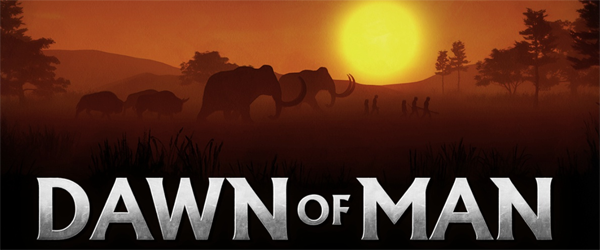
From what I've read, Madruga's indie management sim Dawn of Man has proven to be far more successful than the developers had ever imagined. The game made it onto Steam's top-sellers list the month that it released and was a surprise hit. I've actually had the game on my radar for quite some time. I saw a preview for it back in mid 2018 in a YouTube video about "upcoming strategy games for 2019". I watch those from time to time to see if any new games are coming out in the niche genres that I enjoy -- like city-builders, strategy games, and horror games.
My two favorite PC games are the Civilization games and city-builders like Cities: Skylines, so a management sim / city-builder set during the stone, bronze, and iron ages seemed right up my alley.
A prehistoric city-builder is an idea that is right up my alley!
Like any good management sim or city-builder, Dawn of Man has a "one-more-season" addictiveness that kept me playing into the wee hours of the morning trying to balance my food stockpiles and finish that next set of construction projects before saving and quitting. I'd tell myself that I'd play it for an hour or two, then switch to Sekiro, or work on a Civilization strategy guide, but five hours later, I'd be building palisades and watchtowers to protect my little neolithic farming village from plundering raiders, or sending an expedition halfway across the map to hunt one of the last few remaining wholly mammoths.
Learning by doing
You start the game as a small group of 7 paleolithic humans (half of which are children) living in a handful of animal skin tents. You hunt animals, gather sticks and stones, pick berries and nuts, craft simple tools, and eventually expand your handful of tents into a bronze or iron age city -- complete with walls and an army.
Your progress through the eras is governed by the accumulation of knowledge points. These knowledge points are gained by completing certain tasks or milestones within the game. Your people effectively learn by doing, and through repetition. Each "first" within the game will earn a knowledge point. Build your first hut: gain a knowledge point. Hunt your first deer: gain a knowledge point. Craft your first composite spear: gain a knowledge point. Plant your first crops: gain a knowledge point. And so on.
You accumulate knowledge points by
completing in-game tasks or milestones.
After that, you gain further knowledge points by repeating certain tasks or stockpiling certain resources. Crafting 10 bows will be another knowledge point. Drying and curing 100 units of meat would be another knowledge point. And so on.
You're constantly and gradually earning new knowledge. You can turn in lump sums of these knowledge points for new technologies in a technology tree.
I like this mechanism of "learning by doing". There is no place-it-and-forget-it "research" building or school that passively accumulates knowledge points like what you might see in other strategy games like Civilization. Learning is an active process for your little simulated people, even though most of your knowledge points will come from activities that are automated anyway.
... [More]
8bb5fcaa-40f9-429e-bb8c-c0e44b7d6529|2|5.0
Tags:Dawn of Man, Madruga Games, village, city, strategy, city simulation, city planner, prehistory, paleolithic, mesolithic, neolithic, copper age, bronze age, iron age, mammoth, hunting, gathering, indie gaming
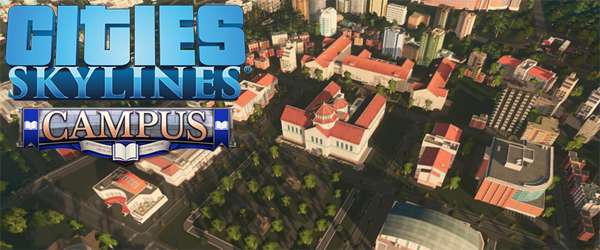
Hot off of releasing a video in which I criticized Colossal Order's design philosophy for its Cities: Skylines expansions, a new expansion was released. This expansion fulfilled my fears by being similarly narrow in scope compared to the previous expansions. Campus might even be more narrow than previous expansions. Every city will need parks and industries, so you'll have plenty of opportunity to use those expansion features in every city you build. Not every city will need a sprawling university complex, so a given city might not ever need to include any of the Campus content.
I had recently criticized the expansion design philosophy for Cities: Skylines.
Fortunately, there's more options here than a full-blown research university. Colossal Order has added several types of university areas that are more suitable to modestly-sized cities. Sure you may not need that full-blown research university, but maybe your smaller town could use a trade school or liberal arts school?
Even so, the scope here is very narrow! Colossal Order seems to have recognized this, as they are selling the expansion for a couple dollars less than previous expansions.
School is back in session, even for your industries!
Since Mass Transit, new expansions have struggled to find ways to make broader impacts on the game as a whole. They mostly stayed in their lanes. Campus follows suit by not adding anything that isn't related to education, however, those overhauls to education do have some further-reaching ripple effects.
Over-educated citizens used to refuse to take lower-level industrial jobs.
One of the problems that players have had to deal with since the initial launch of the game has been over-educated workers. Once you have schools in your city, it's only a matter of time before virtually everyone has a high level of education -- even children. This would leave all those educated citizens unwilling to take low-education, low-paying jobs in your factories and farms and would starve those industries of eligible workers. Demand for high-end commercial and office zones would skyrocket, and all your educated citizens would take those jobs. This would force those lower level industries to all but shut down once your city grows large enough.
Citizens' education level is now bounded by the level of schooling that they've attended. Prior to Campus, simply having a university in your city would provide everybody attending school (at any level) with a high level of education. Now, this has finally been fixed such that only those citizens who attend higher levels of schooling will receive the higher levels of education. This means that if a student goes to elementary school, but doesn't attend high school (either because they get a job first, or there isn't enough capacity in your high schools), then that citizen will be capped at a low level of education and will remain eligible for those low-level factory jobs.
... [More]
53aeb445-6e6e-4b24-ac8e-7fac34b2e368|0|.0
Tags:Cities: Skylines, Cities: Skylines: Campus, Colossal Order, Paradox Interactive, Steam, PC, city, university, education, college, student, varsity sports, library
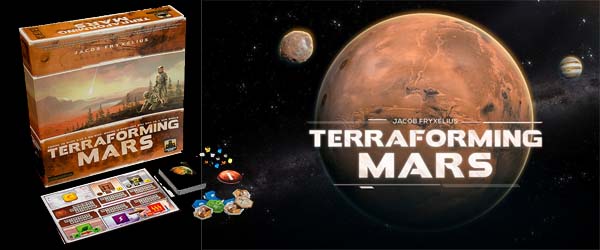
Steam recently released a digital version of the board game Terraforming Mars. I haven't played the digital version (which is getting "mixed" and negative reviews at the time of this writing), but I have played the board game version. It's pretty fun, and in celebration of the latest NASA probe landing on the surface of Mars, I thought I'd launch a review of the board game.
Terraforming Mars has a wide variety of gameplay mechanics, which makes it kind of difficult to clearly categorize it. It also makes it a little difficult to teach the game to new players efficiently. It's not an overly-complicated game, however. It's just a lot of different concepts that you have to explain. Regardless, I've been able to get through learning games with new players in about three or three-and-a-half hours (including the rules explanation). So it's not overly burdensome to learn and play. It's also not terribly hard to simply play a sample round to teach the game flow, and then mulligan the game if any players feel they dug themselves into a hole.
Terraforming Mars has multiple distinct mechanics, ranging from tableau-building to tile-placement.
There's tile placement with adjacency bonuses. There's resource management. There's action economy. There's a little bit of tableau building and hand management. There's even a certain degree of bluffing. Playing with the non-basic corporations adds variable player powers, You can even optionally play with card drafting! Pretty much the only thing that we're not doing is loyalty / betrayal mechanics. Despite including so many varying game mechanics, nothing feels out of place, and everything fits together well.
The rulebook includes footnotes explaining the scientific basis for the rules and mechanics.
Depending on how you play, however, the actual game board and your tableau of cards can sometimes feel very disparate. If you're not actively placing tiles on the board, then the whole board can pretty much boil down to a score and prerequisite tracker. However, if you're avoiding placing tiles on the board, then you're probably going to lose, as I've yet to see a predominantly card-based strategy win the game.
The board itself includes a map of Mars' surface, and has notable landmarks on Mars clearly labeled. Unfortunately, the board only covers one half of Mars' surface, so there's some notable landmarks that are not included at all (perhaps the other side of the planet is an expansion?). The resource cubes are very shiny and pretty, and have an appropriately sci-fi aesthetic to them. The rulebook also includes little footnotes that explain some of the scientific bases for the game's rules and mechanics. it's like the kind of thing you might expect if Neil DeGrasse Tyson wrote a board game. Science and space nerds will probably really appreciate these efforts at scientific accuracy.
The resource cubes are pretty, but shift around very easily on the flimsy, card stock economy boards.
Other components besides the resource cubes are kind of cheap and flimsy though. The player economy boards are printed out on basic card stock. There aren't any slots or grooves for the production cubes to sit in, so they slide around very easily if the table is jostled, or if the economy board is shifted around. You may want to invest in some third-party replacements or overlays in order to solve this problem.
The box also doesn't have any inserts of any kind for storing components -- just a handful of plastic, zip-lock bags. They expect you to just drop all the cards in a plastic baggie and just toss them in the box haphazardly along with all the other pieces!
At a price point of $70 (USD), I expect more from a game's components! Fortunately, where the game lacks in production value, it more than makes up for in entertainment value!
... [More]
ef527080-aedf-4583-a72d-8d6ee9108d4f|0|.0
Tags:Terraforming Mars, Stronghold Games, Jacob Fryxelius, board game, Mars, space, science fiction, terraforming, technology, hex, tile, city, forest, ocean, temperature, oxygen, victory points
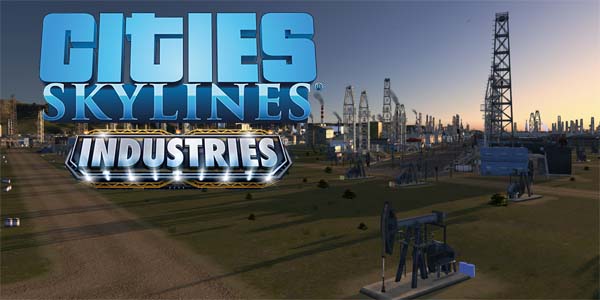
Wow, Colossal Order is really popping out these Cities: Skylines expansions in rapid succession! I feel like this is the third or fourth expansion in the last year alone! ... Hold on, let me check ...
| Expansion title | Original release |
 | After Dark | 24 September 2015 |
 | Snowfall | 18 February 2016 |
 | Match Day* | 9 June 2016 |
 | Natural Disasters | 29 November 2016 |
 | Mass Transit | 18 May 2017 |
 | Concerts* | 17 August 2017 |
 | Green Cities | 19 October 2017 |
 | Parklife | 24 May 2018 |
 | Industries | 23 October 2018 |
| * denotes a mini content pack, rather than full expansion. |
... So, yeah; third full expansion in the last 12 months (give or take a few days). Fourth expansion in the last 14 months if you want to count the Concerts content pack. Colossal Order seems to have been following a pattern of two full expansions and a mini content pack each year since the game released. I guess that's one way to keep your game relevant. It has certainly kept me coming back every few months.
Never as robust as I would like
The problem is that the limited development time means that the content that is provided in these expansions rarely ever feels as robust or comprehensive as it should -- at least, not to me. As such, I feel like I'm getting diminishing returns from each new expansion. The amount of content that is already in the game means that each new expansion feels like relatively smaller drop of content into an already-large bucket. Each expansion feels like it gives us less to do, and has that much of a smaller impact on the overall gameplay experience.
Adding to the problem of diminishing returns: every single expansion has had some glaring omission or weakness that bothered me, and none of the later expansions have bothered to go back in and address the weaknesses and limitations of the previous expansion(s). After Dark failed to include zoneable public beaches and didn't really make the day/night cycle feel as meaningful as it should. Snowfall failed to include season cycles to go along with After Dark's day/night cycle, and completely dropped the ball with regard to mechanics like ski resorts. Natural Disasters probably felt like the most "complete" and well-rounded expansion (not to mention the most novel one), but still suffers from its content being random, and it neglected to introduce any winter-specific disasters to go along with Snowfall.
Industries follows a long-standing trend with Skylines expansions neglecting seemingly-obvious features.
Mass Transit brought the long-overdue ferry transit option, but neglected to revise cargo harbors to make cargo ship routes more practical, and didn't have any water-based city services (like a coast guard, for example) that would allow a true island economy to function without a network of bridges for freight and emergency services. Green Cities was maybe the laziest expansion, and it focused on pollution-management, but didn't bother to actually make pollution any more relevant or challenging to begin with. Lastly, Parklife granted a lot of player expression, but failed to incorporate the legacy parks into the new modular park feature and doesn't allow the camera to zoom in close enough to get a good look at your pretty decorations.
This isn't to say that all these expansions are "bad". I've liked them all (except maybe for Snowfall and Green Cities), but none of them have really wow-ed me with their content (except maybe for Natural Disasters). And the modular nature of each expansion means that it has limited-to-no impact on the core game systems, and limited-to-no interaction with the previous expansions.
The latest expansion, Industries follows suit. It promises to re-invent the way that your cities' industry functions, but kind of does it in an almost half-assed way. Much like the expansion before it, Parklife, Industries doesn't really incorporate the old legacy industry zones into the new industry mechanics. The new "Industry Area" paintbrush is virtually the same mechanic as the Park Area paintbrush from the last expansion. It isn't a replacement for the original industrial district specialization, so if feels like it's pretty much duplicating that content rather than re-inventing it.
You paint an area as an "Industrial Park", just like the parks in Parklife.
... [More]
e7bfb680-e9c4-4e53-a202-52f87d32d445|3|3.7
Tags:Cities: Skylines, Cities: Skylines: Industries, Colossal Order, Paradox Interactive, city, city planner, city simulation, Cities: Skylines: Parklife, Cities: Skylines: After Dark, industry, pollution, natural resources, resources, production chain, district, farm, timber, lumber, ore, mining, oil, drilling, leisure, commerce
|

| 12 | | | | | | | 60 | | 11 | | | | | | | 55 | | 10 | | | | | | | 50 | | 09 | | | | | | | 45 | | 08 | | | | | | | 40 | | 07 | | | | | | | 35 | | 06 | | | | | | | 30 | | 05 | | | | | | | 25 | | 04 | | | | | | | 20 | | 03 | | | | | | | 15 | | 02 | | | | | | | 10 | | 01 | | | | | | | 05 |
|